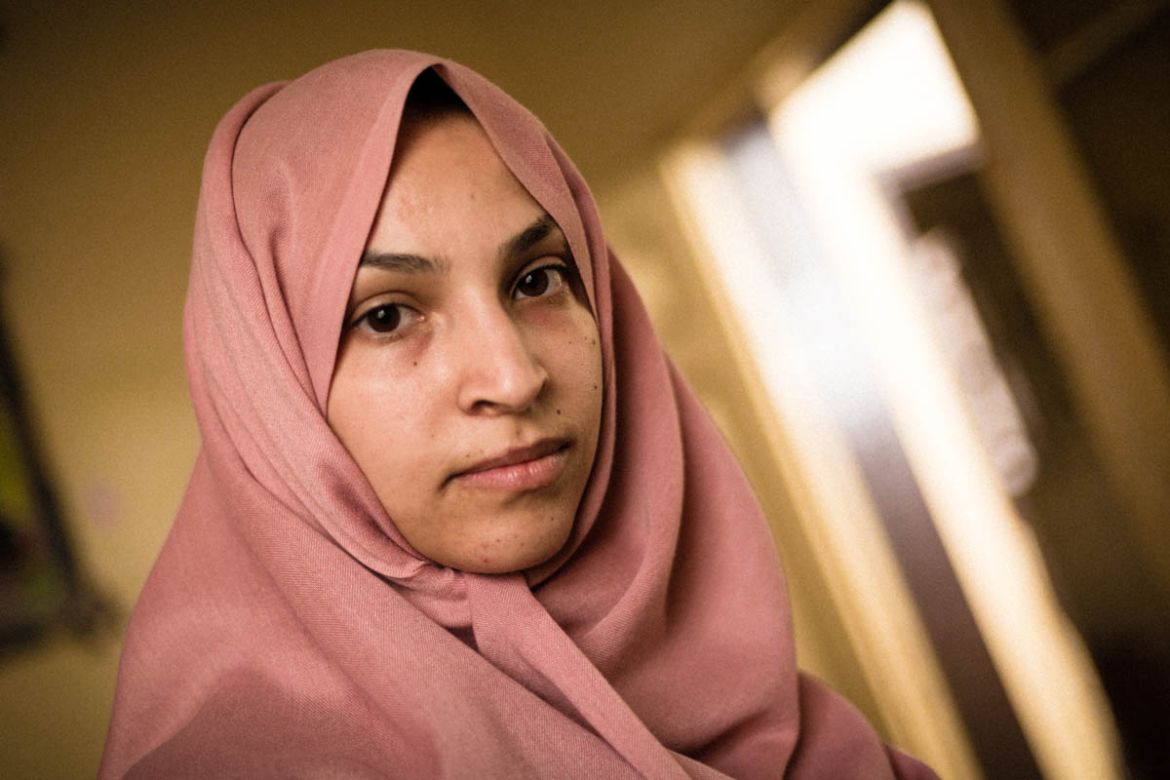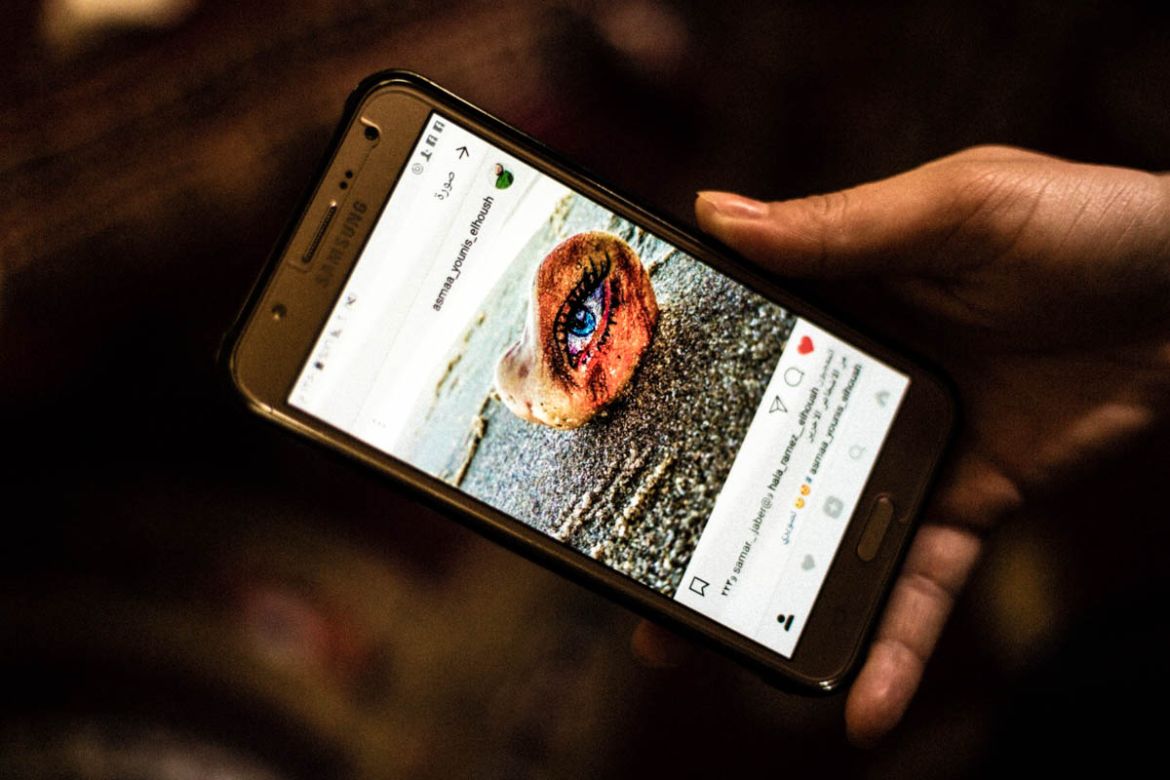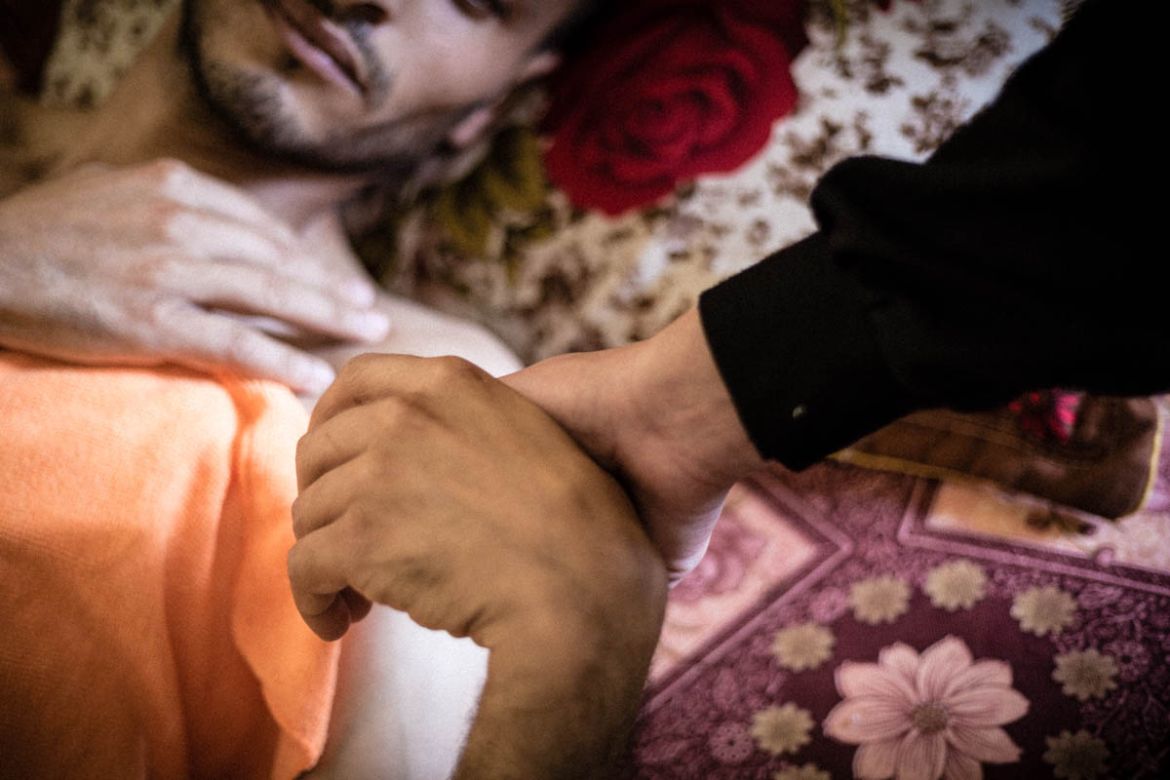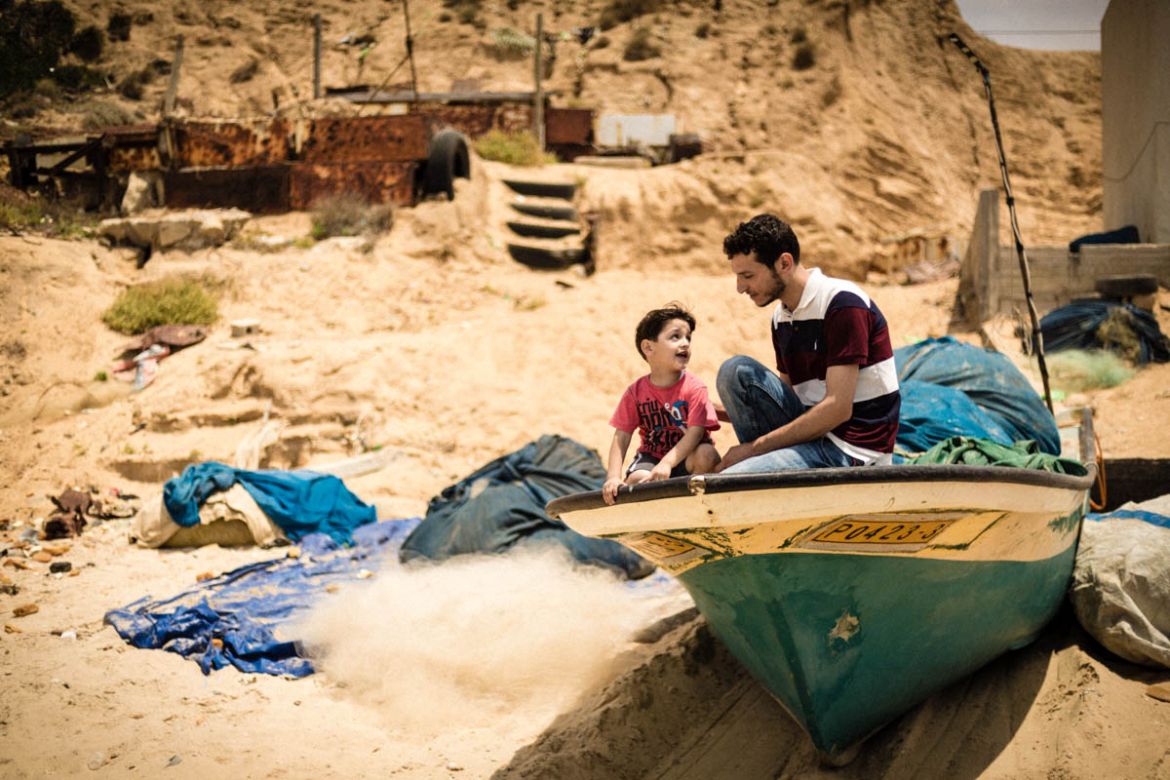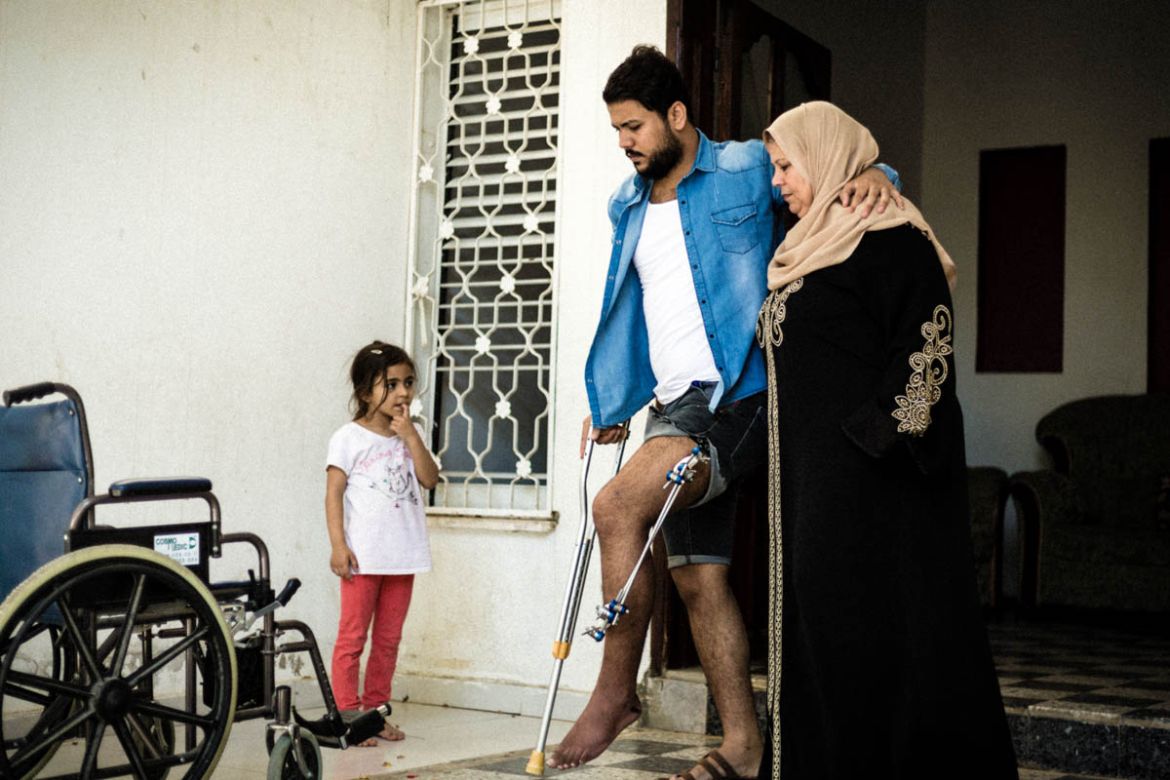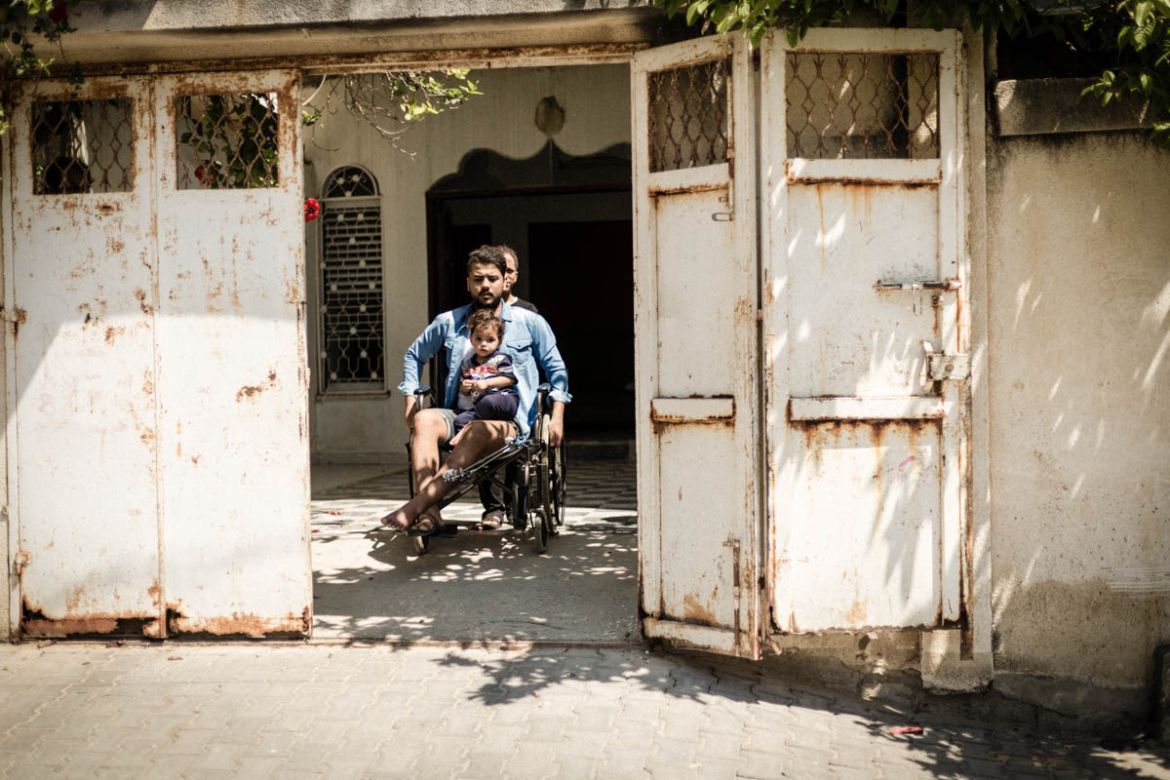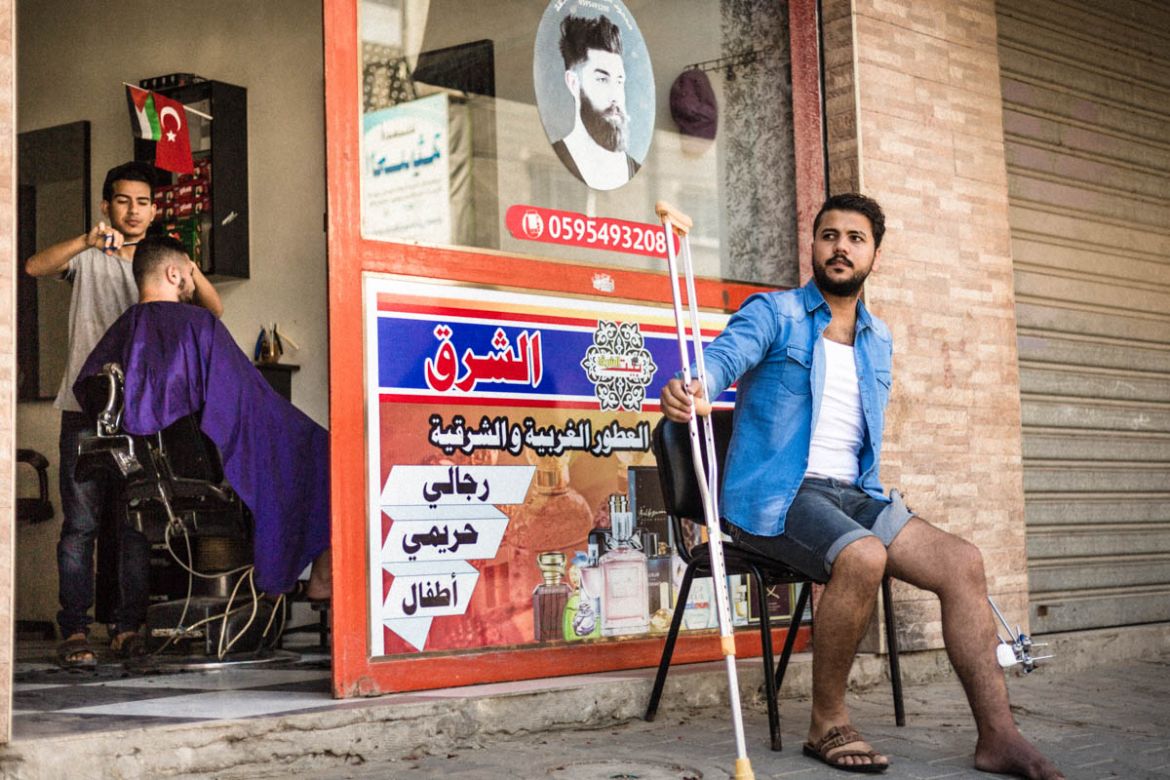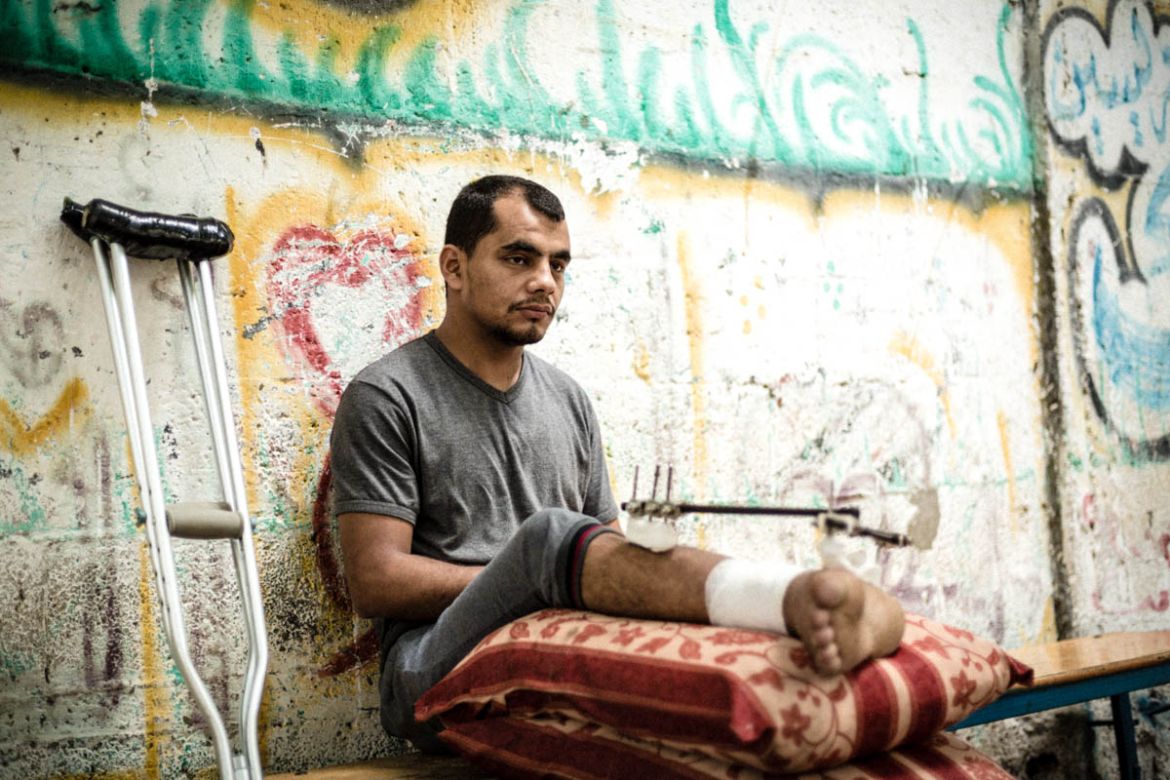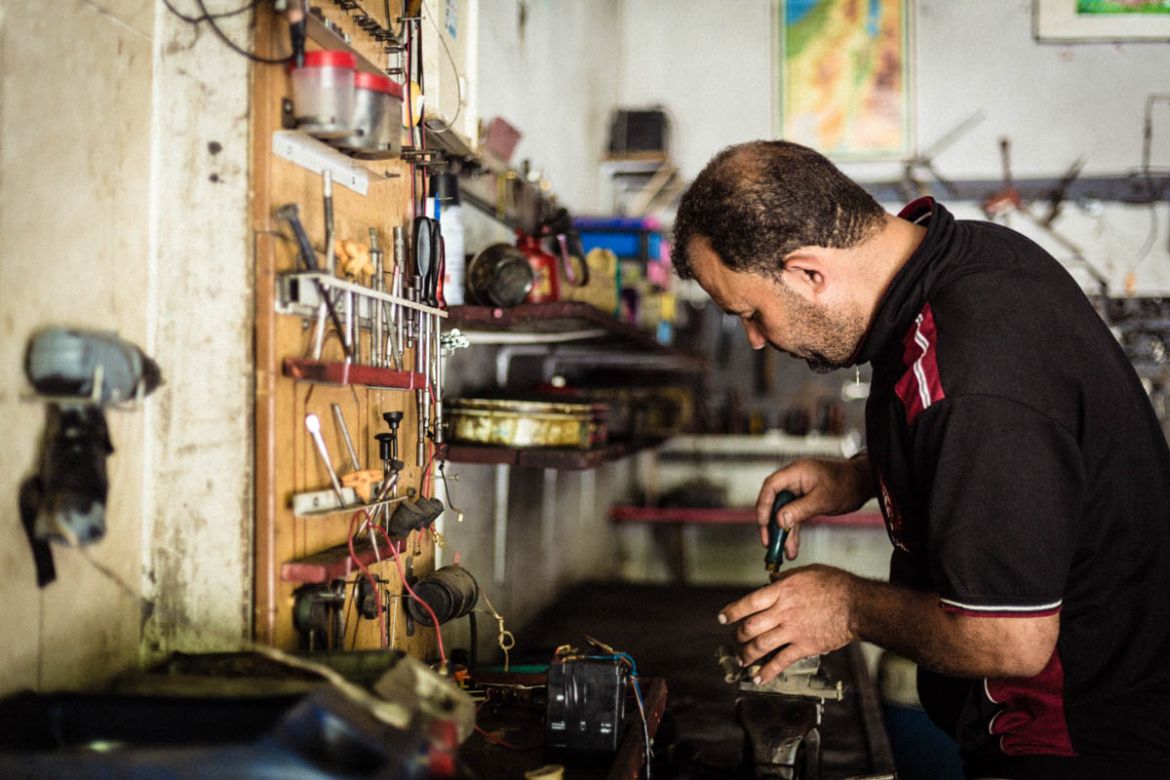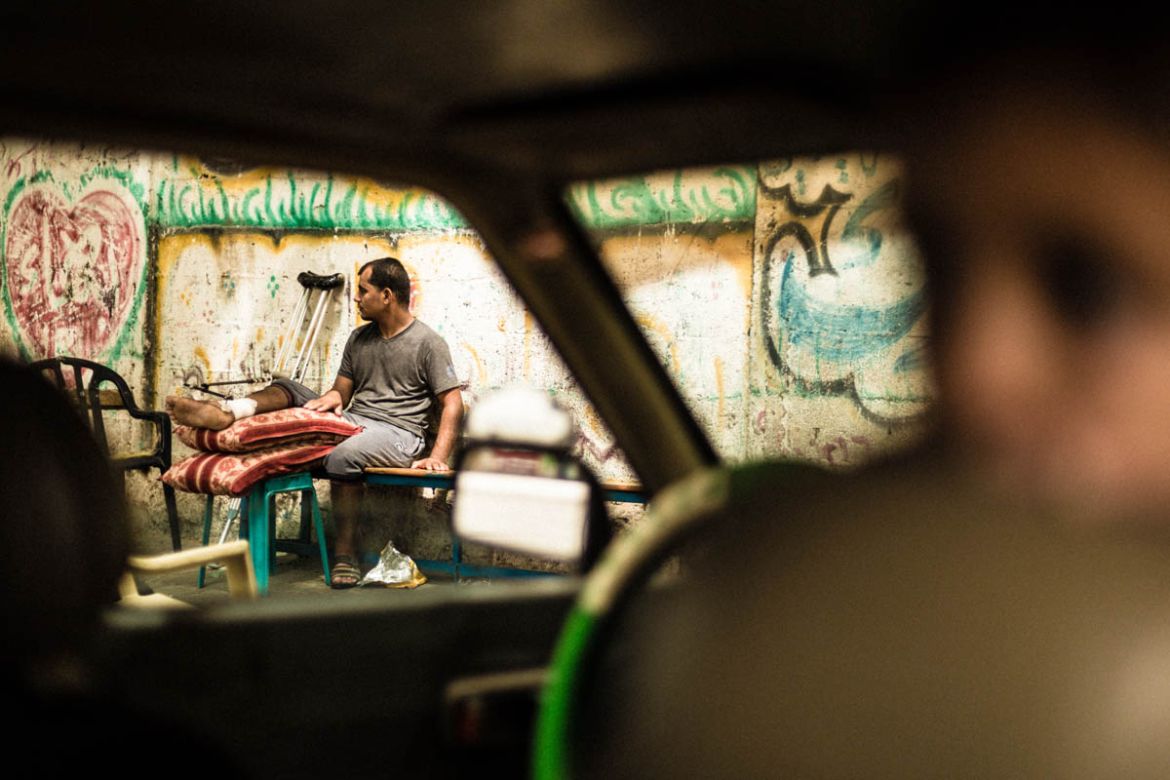In Pictures
Home as hospital: Gaza families struggle to care for the wounded
Injured and physically disabled men have now become part of the urban landscape in Gaza.
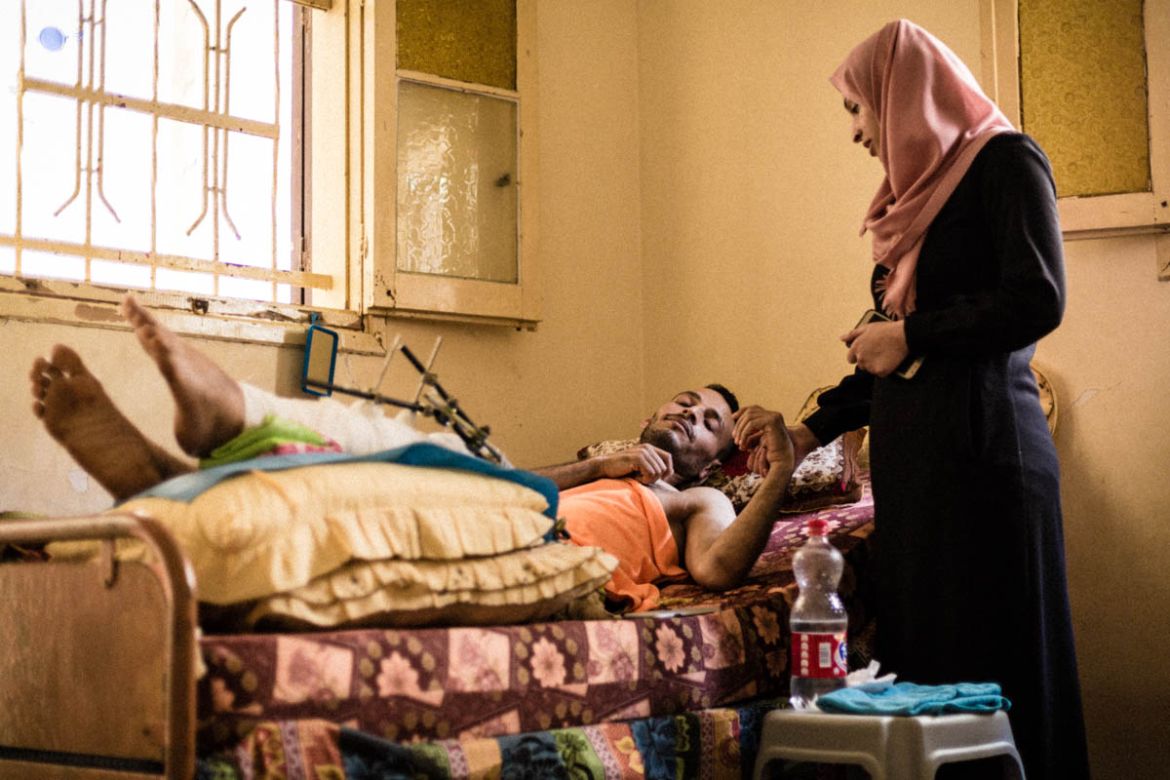
“The pain is unbearable, but I try not to scream because I don’t want my family to spend more money on drugs,” said Omar, a 25-year-old fisherman wounded in the recent upsurge of violence in Gaza.
Omar’s bandaged leg is propped up against two pillows. Metal rods and pins protrude from the bone. A plastic bag filled with pills is hanging on a window latch next to the bed. A simple room in the family house has been turned into a makeshift hospital ward. It’s an improvisation that has become a familiar sight in many houses in Gaza.
Violence escalated in the border area of Gaza at the end of March, resulting in dozens of deaths and thousands of wounded, many by live ammunition.
Hospitals, overwhelmed by a series of injured people, have already reached the limit of their capacity. Medical staff are constantly faced with the dilemma of either discharging patients early or having no space to receive new ones.
The burden that hospitals could not handle fell on the shoulders of the families, adding emotional, financial and logistical stress to already difficult lives.
“Somebody has to be with him 24 hours,” said Abdallah, Omar’s brother.
Abdallah earns a living as a construction worker, but has been spending most of the time caring for Omar since a bullet hit his leg on May 14. He shares the task with Asmaa, Omar’s twin sister, who had to make her own sacrifices.
Omar, who looks thin and exhausted, said he knows the burden he is placing on his family: “I feel like I have paralysed the lives of two people.”
While Omar’s family is struggling to give him the best care they can, the financial hardship is becoming more pressing. Gaza is experiencing the worst economic crisis since the war in 2014 and almost half of its population is unemployed.
Meanwhile, injured and handicapped men have now become part of the urban landscape in Gaza. They sit in front of hospitals, but also in the street and at the markets. The surgical device used to stabilize fractured bones of many young men is now referred to as “Gaza leg” locally.
Dr Gabriel Salazar, health coordinator in Gaza for the International Committee of the Red Cross (ICRC) said there are over 1,300 with health complications due to injuries, while some 400 remain with a temporary or permanent disability.
